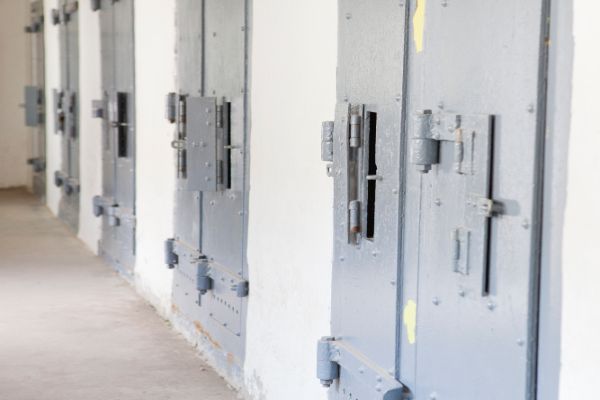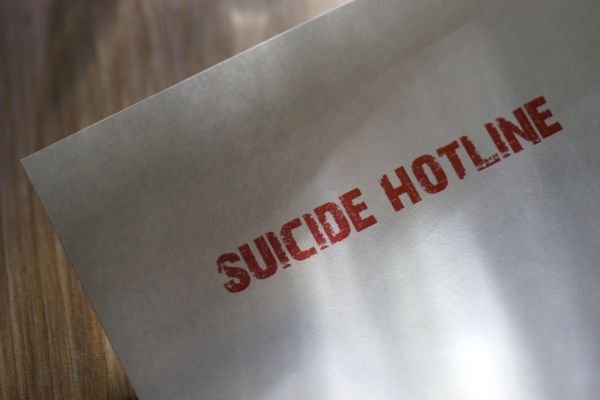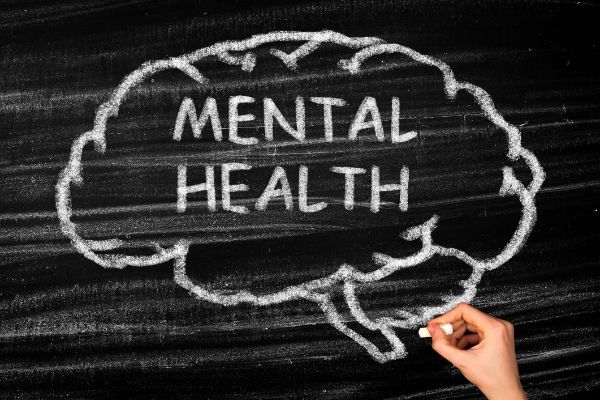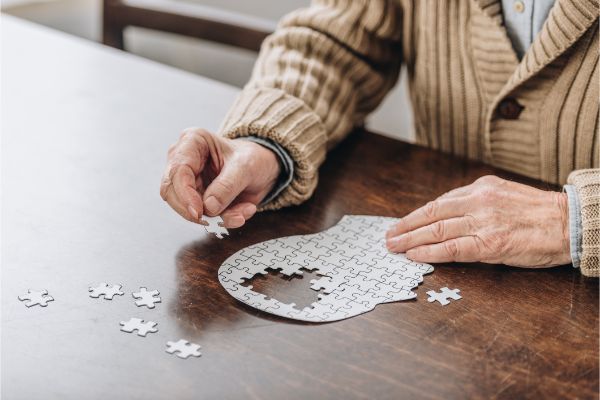|
According to the Centers for Disease Control and Prevention (CDC), approximately 1 in 59 children in the United States has autism spectrum disorder. About 1 in 6 children has severe intellectual and developmental disabilities. In addition, people with disabilities are 2.5 times more likely to be victims of violent crime. However, roughly one-third to almost half of all people killed by law enforcement suffer from a disability.
Dealing With the Differences Many police officers have difficulties dealing with people with autism or other differences. Most of this is due to a lack of appropriate training. This situation was brought to the forefront in the summer of 2019 when an off-duty police officer shot and killed a man who was nonverbal and developmentally disabled. Most police officers don’t understand the symptoms of conditions like autism and other mental disabilities. They look at behaviors such as self-stimulation, delusions, anxiety, and anger as criminal behavior. Not a Crime It is critical that police officers are trained that having a mental disability is not a crime. Police departments across the country are now finding that they have a problem when it comes to how they deal with the disabled. Many are now conducting Crisis Intervention Training, which is conducted by mental health experts. This training can help police officers recognize the symptoms of autism and learn practical ways to approach individuals with a mental disability. The officers can learn how to deescalate a situation rather than making matters worse. During this training, police officers should also be taught that not everyone with autism behaves in the same manner, and they should be prepared for any situation. Training that encourages police officers to interact with the autism community can be especially helpful in gaining a better understanding of the disorder. Communicating with families and advocates can help police officers gain perspective. A real-life connection to individuals with disabilities can bridge the communication gap and lead to better encounters. If you or a loved one has a mental disability and has been arrested or convicted of a crime, you need an experienced criminal defense attorney on your side. Elizabeth Kelley specializes in representing individuals with mental disabilities. To schedule a consultation call (509) 991-7058. In December of 2019, the American Academy of Pediatrics released a report on autism. The report was an extensive document that summarized 12 years of research and clinical activity. Researchers noted that one key message of the report was the emphasis on early identification and treatment of autism spectrum disorder. The report noted that treatment should begin even if a diagnosis of autism is only suspected but not confirmed. The earlier treatment begins, the better the outcomes.
Early Diagnosis The average age of autism diagnosis is age four. However, researchers note that the goal should be to get a diagnosis under two years of age. Children who are at high risk, such as those with siblings that have autism, should receive close screening and attention. Unfortunately, many specialty clinics have long waits, and it can take months to see someone to receive a diagnosis. The authors of the report are hopeful that more pediatricians can refer families to early intervention services before a specific diagnosis has been confirmed. Types of Treatment There are various treatments available to children with autism. The most intense treatment is Applied Behavior Analysis (ABA). This treatment addresses specific behaviors, identifies triggers, and rewards children when they behave in the desired way. Cognitive-behavioral therapy and occupational therapy have also proved helpful. In some cases, medication treatment may be necessary. Regardless of the type of intervention, the earlier the treatment is begun, the more effective it will be. There are also a host of other medical, behavioral, and psychiatric conditions that children with autism may have. These conditions can affect a child’s overall functioning. Addressing these conditions early with medication or therapy can also be extremely helpful. Growing Up With the use of early treatment, some children with autism reach an optimal outcome to where all of their symptoms are under control. However, for many, work on transitioning into school and then adulthood must be considered. Early diagnosis and treatment can help make these conversations possible and lead to more successful planning for the future. If you or a loved one has a mental disability and has been arrested or convicted of a crime, you need an experienced criminal defense attorney on your side. Elizabeth Kelley specializes in representing individuals with mental disabilities. To schedule a consultation call (509) 991-7058. In New York State, suicide is the second leading cause of death among adolescents. With adequate mental health care, perhaps many of those deaths could have been prevented. However, in the face of rising teen suicides, New York State plans to reduce access to mental health care for children.
At the end of 2019, New York State cut reimbursement rates for behavioral health services for children and families eligible for Medicaid. These services were provided through a program called Children and Family Treatment and Support Services. Medicaid provides healthcare coverage to roughly one-third of the state. That number includes more than 200,000 children and adolescents with mental health problems. Already a Struggle Children across the state already struggle to get the mental health care they need. Many languish on waiting lists for care. They regularly wait for weeks or even months to receive care for sometimes serious mental illness. For every 10,000 children in New York, there are only two child psychiatrists. In much of the state, mental health care is provided by small community programs that will not be able to provide assistance if their reimbursement rates are cut. These community centers are already struggling. The new reimbursement rates will cover face to face visits with children but will not provide funding for travel, taking case notes, laptops, and back-up staff. Many small health care providers will be destroyed by the cuts in funding. In New York, as in most places, mental health programs struggle with high turnover and unfilled positions. This is due to the low pay and intense workload required by these providers. Further cuts will be devastating to the mental health care system, and it is the children of New York who will suffer. Many families will be forced to turn to local hospitals for their care. Community-based programs provide the most effective mental health care. Cuts to these programs will be harmful. If you or a loved one has a mental disability and has been arrested or convicted of a crime, you need an experienced criminal defense attorney on your side. Elizabeth Kelley specializes in representing individuals with mental disabilities. To schedule a consultation call (509) 991-7058. A federal judge found that California prison officials intentionally filed misleading data with the court regarding how often prison inmates were receiving mental health care. U.S. District Court Judge Kimberley J. Mueller in a Sacramento federal court stated that the California prison system would continue to be overseen by the court until it can demonstrate that it can provide adequate mental health care.
Whistleblower The judge's order validates claims by Dr. Michael Golding, the top psychiatrist in the state's prison system, who compiled a whistleblower report that accused the state of providing false and misleading data to the court to coverup for woefully inadequate mental health care. The judge found that, in order to get out from under years of court oversight of mental health care services, the state manipulated data regarding how frequently mentally ill inmates were seen by psychiatrists. The state also fudged data on the amount of care mentally ill inmates were receiving. Dr. Golding has remained in his job at the California Department of Corrections and Rehabilitation (CDCR) but claims that he has faced retaliation for his report. This is despite the court’s order that no action be taken against him. Misleading Data In her order, the judge noted that it was clear that the state had offered misleading data to the court. The judge could not find that this misleading data amounted to fraud and noted that it might be the result of a broken system. Some of the misleading data may have stemmed from the fact that officials changed the requirement that inmates see a psychiatrist every 30 days to now requiring it every 60 days. This made it seem as though mentally ill inmates were receiving adequate care. Dr. Golding also noted in his testimony that the state relied on treatment from clinicians rather than psychiatrists. The state will now have to do a mountain of work to regain the confidence of the court and others in the community. If you or a loved one has a mental disability and has been arrested or convicted of a crime, you need an experienced criminal defense attorney on your side. Elizabeth Kelley specializes in representing individuals with mental disabilities. To schedule a consultation call (509) 991-7058. Jurisdictions across the country are looking for ways to reduce the use of solitary confinement. In the wake of several lawsuits, jurisdictions are realizing that solitary confinement can lead to mental health problems and exacerbate mental illness. The practice is inhumane. Now some counties in California are taking new approaches toward solitary confinement, and it is leading to fewer inmates in confinement.
New Criteria Counties such as Santa Clara, Contra Costa, and Sacramento are establishing new criteria for when inmates are placed in solitary confinement. Rather than using solitary confinement for nonviolent nuisance infractions where an inmate is caught with contraband or disobeys orders, solitary confinement is reserved for inmates who exhibit continued violent behavior. The new criteria have gone a long way toward reducing the number of inmates in solitary confinement. In 2019, Contra Costa County began the year with 100 people in solitary, and by December, there were only six individuals in confinement. Sacramento County cut its solitary confinement population by half. Santa Clara went from 400 inmates in solitary to only 26 by December after implementing the new criteria. These California jails are also taking different approaches to handle nonviolent infractions. Rather than jumping to confinement or more violent actions, jails are working toward using reward systems and positive reinforcement to encourage better behavior. Individuals are offered more snacks or more TV time to encourage them to follow the rules. The approach is surprisingly working. In addition to reducing the use of solitary confinement, jails are also working toward reducing the amount of time an inmate is in solitary. The longer an individual is in solitary confinement, the more detrimental it can be to their mental health. The jails are using systems like placing inmates with smaller populations and having them agree in writing not to be violent. Other Jurisdictions Other jurisdictions across the country are also working on reducing the use of solitary confinement or segregation. Hampden County in Massachusetts now relies on alternative sanctions and positive reinforcement. New Jersey’s Middlesex County has been reducing the amount of time individuals are in solitary and letting them out of their cells more frequently. In Cook County, Illinois, troublesome inmates are no longer kept in solitary and are instead placed in small groups of inmates. If you or a loved one has a mental disability and has been arrested or convicted of a crime, you need an experienced criminal defense attorney on your side. Elizabeth Kelley specializes in representing individuals with mental disabilities. To schedule a consultation call (509) 991-7058. After a vote in December of 2019, the Federal Communications Commission (FCC) agreed to move forward with plans that would designate a three-digit number to direct callers to the National Suicide Hotline. The three-digit number is 988 and calls to mind the emergency nature of 911 calls. FCC staff recommended this number as it is short and easy to remember.
The five-member commission unanimously voted to approve the proposal, which is now open to rulemaking and public comment. The new proposal would call for carriers to implement 988 as a national suicide prevention hotline within 18-months. The FCC is now asking for input on implementation. In its report to Congress, the FCC noted that, in order to implement the hotline, it would cost $520 million for the first year and $175 million for the second year. These costs would include an increase in hotline call center personnel and a widespread public awareness campaign. Legislation in the Works A bipartisan bill was introduced in the Senate that would establish 988 as a suicide prevention hotline. In December, the bill was approved by the Senate Commerce Committee. A companion bill was introduced in the House. This legislation would authorize states to collect fees that would help ensure that local crisis centers could handle the anticipated increase in call volume. Facts About Suicide According to the Centers for Disease Control and Prevention (CDC), suicide was the 10th leading cause of death in the United States. Suicide rates increased by 33% between 1999 and 2017. More than 47,000 Americans died by suicide in 2017. The National Suicide Prevention Hotline was established in 2005 by the Substance Abuse and Mental Health Services Administration and the non-profit Vibrant Emotional Health. The hotline can currently be reached by calling 1-800-273-8255 (TALK). According to the FCC, the hotline received 2.2 million calls and more than 100,000 online chats last year. If you or a loved one has a mental disability and has been arrested or convicted of a crime, you need an experienced criminal defense attorney on your side. Elizabeth Kelley specializes in representing individuals with mental disabilities. To schedule a consultation call (509) 991-7058. When someone is in the midst of a mental health crisis, concerned individuals may call 911. However, police officers on their own may not be the best response to a mental health call, and the call can easily result in an unnecessary arrest. Police in Columbus, Ohio, are now taking a different approach to mental health calls.
Reducing Arrests As part of a partnership between Franklin County’s 24-hour mental health crisis center Netcare and the Columbus Police Department, police officers and social workers respond together to calls that may involve someone in a mental health crisis. These mental health response teams consist of a police officer and a social worker. There are currently five teams working as part of the program. The aim of the program is to increase the instances where a mental health professional responds to a mental health call. The ultimate goal is to reduce the number of arrests that result from mental health calls. Frequently, a social worker may be able to deescalate the situation and help an individual connect with services rather than an arrest. In some cases, individuals in crisis may volunteer to be transported to a hospital. In other cases, a “pink slip” may be issued, which will give doctors, police, or others the power to have a person hospitalized temporarily against their will if they present a danger to themselves or others. None of these solutions includes involvement with the criminal justice system. The program has found that on any particular mental health call, there is a 50% chance that the person will be hospitalized for a mental health intake. During its trial phase, the teams responded to 7,000 calls. There were 864 calls that resulted in transports, only 6 of which resulted in someone being taken to jail. That's a rate of .07%. Compared to the 10% rate of arrest among standard patrol officers, it is clear that the teams are making a difference. If you or a loved one has a mental disability and has been arrested or convicted of a crime, you need an experienced criminal defense attorney on your side. Elizabeth Kelley specializes in representing individuals with mental disabilities. To schedule a consultation call (509) 991-7058. In middle-aged and older people, actions that are not normal for that person may be the first sign of dementia. In some cases, this can include criminal behavior. Someone who would normally be a law-abiding citizen may find themselves on the wrong side of the law. Studies have shown that there can be a connection between dementia and criminal behavior.
What is Dementia? Dementia is a term used to describe drastic changes in the brain that cause memory loss. In most cases, these changes make it difficult for people to perform basic daily activities. Dementia causes changes in behavior and personality. Dementia affects language, memory, and decision making. There are ten different types of dementia, and most cases are caused by a disease and cannot be reversed. Dementia and Criminal Behavior Given the changes in behavior and problems with decision making, it is not unusual for someone with dementia to engage in criminal behavior. The prevalence of criminal behavior depends on the type of dementia a person has. A study out of Sweden found that 42% of patients with frontotemporal dementia demonstrated instances of criminal behavior, including theft, traffic violations, threats, pyromania, vandalism, and stalking. Only 14.9% of individuals with Alzheimer's disease demonstrated this behavior. Frontotemporal dementia affects the front and sides of the brain, which are the areas that control behavior. In fact, it is considered an early sign of dementia when an individual suddenly engages in criminal behavior. New-onset criminal behavior can be a serious symptom of the disease. An individual may suddenly exhibit verbal or physical aggression. They may also make unwanted sexual advances. People with dementia, as a result of their disease, have no control over their behavior. Individuals who commit crimes because of their dementia should not be held criminally responsible for their behavior. Instead, they should receive treatment and help for their condition. It may be necessary for these individuals to receive care in a secure memory care facility or to have in-home care that can protect them from their own behavior. However, the criminal justice system is not the answer for someone with dementia engaging in criminal behavior. If you or a loved one has a mental disability and has been arrested or convicted of a crime, you need an experienced criminal defense attorney on your side. Elizabeth Kelley specializes in representing individuals with mental disabilities. To schedule a consultation call (509) 991-7058. When someone is concerned about an individual in the midst of a mental health crisis, their first instinct may be to call 911. In response to these types of calls, frequently, police are sent to the scene. Depending on their training, officers may not be able to determine that someone is having a mental health crisis, and the scene can end in tragedy.
Reducing Encounters Statistics show that people with untreated mental illness are 16 times more likely to be killed during a police encounter than other civilians. In addition, those who are not killed frequently end up in the criminal justice system where they languish in jail rather than receiving the help they need. The logical solution to this problem is to reduce the number of encounters between police and individuals with mental illness. Officers just don't have the right training to identify, let alone respond to, an individual with a mental illness. Yet, when 911 is called, officers who may not have been trained to respond to a crisis will arrive on the scene. In the case of a mental health crisis, it would make more sense for someone trained on mental illness to respond to the call. A pilot project in New York City aims to ensure that happens. Calls are triaged, and mental health calls are rerouted to a hotline that can provide phone counseling and referrals to treatment. In addition, mental health professionals are sent out to check on individuals. While there are problems with the program, including delayed responses and call requirements, the idea behind the rerouting of calls has some promise. Sending out trained mental health professionals, perhaps accompanied by an officer, is a more logical response to a mental health call. The ability to identify a mental health issue and the knowledge of how to deescalate a situation can be crucial in an emergency. Proper Training If cities are unwilling to provide the assistance of mental health professionals, then they should establish comprehensive mental health training for their police departments. All officers should be thoroughly trained on how to respond in a crisis. Police should be taught that not all situations can be handled in the same manner, and they should be willing to adjust their approach based on an individual's circumstances. They should be taught to deescalate situations rather than turning to violent responses. The proper training can protect an individual in a mental health crisis from becoming the victim of a senseless tragedy. If you or a loved one has a mental disability and has been arrested or convicted of a crime, you need an experienced criminal defense attorney on your side. Elizabeth Kelley specializes in representing individuals with mental disabilities. To schedule a consultation call (509) 991-7058. |
Details
Archives
March 2024
Categories |









 RSS Feed
RSS Feed